
UNPACK THE BAG
Because you don’t have to carry it alone.
Remember that feeling when you first put on the uniform? The pride, the purpose, the calling to serve? Now fast forward through the years of calls, the late nights, the wins and losses, the moments that changed you. They all go into what I call your duffle bag of memories.
Some memories make the bag lighter—the lives you’ve saved, the difference you’ve made, the moments that remind you why you chose this path. But others… they add weight. The pediatric calls that haunt you. The ones you replay at 3 AM. The calls that make you hug your kids a little tighter.
That’s why Unpack the Bag was created.
Where First Responders Find Support
Every call, every scene, every life-changing moment adds something to your bag. At Unpack the Bag, we understand that weight. We’re here to help you navigate the unique challenges of emergency service life through:
Training That Makes a Difference
Resilience Awareness Training
Give your team practical tools to manage stress and prevent burnout. Learn more.
Personality Intelligence Training
Build stronger crews through better understanding of team dynamics. Learn more.
Resources You Can Trust
Our growing library of articles and resources covers topics that matter to first responders:
- Recognizing signs of compassion fatigue
- Managing the hypervigilance cycle
- Building resilience strategies that work
- Supporting fellow team members
- Strengthening department dynamics
For Departments
Help your teams thrive with:
- Customized training programs
- Free weekly content to keep the conversation going
- Leadership development resources
- Tools for building resilient crews
- Strategies for reducing turnover
- Practical solutions for common challenges
For Individual First Responders
Access free resources to:
- Develop effective coping strategies
- Connect with peers who understand
- Find practical support tools
- Understand why you’re experiencing the emotions and responses you’re experiencing
- Join our online Facebook Group
Because the weight of service shouldn’t be carried alone.
Need immediate support?
- Suicide and Crisis Lifeline 988
- Fire/EMS Helpline 1-888-731-FIRE (3473)
- Copline 1-800-267-5463
- Veteran’s Crisis Line 988 & press 1 or Text 838255
- Frontline Helpline 1-866-676-7500
Articles on Resiliency for First Responders
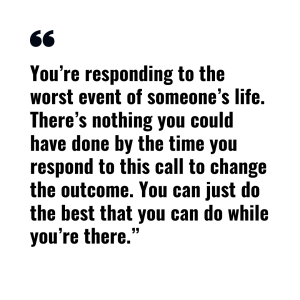
When You Did the Best You Could: Finding Peace After Difficult Calls
“You’re responding to the worst event of someone’s life. There’s nothing you could have done by the time you respond to this call to change the outcome. You can just do the best that you can do while you’re there.” This reminder cuts to the heart of one of the
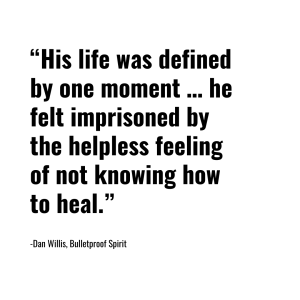
Breaking Free from the Prison of Unprocessed Trauma
“His life was defined by one moment … he felt imprisoned by the helpless feeling of not knowing how to heal.” This quote from Dan Willis’s “Bulletproof Spirit” captures a reality that far too many first responders face, yet few openly discuss. That moment when a single traumatic event or
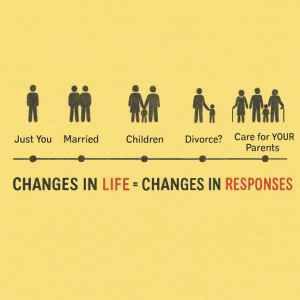
The Evolution of Response: How Life Changes Affect Your Calls
When you first stepped into your uniform, fresh from training, every call was about protocols and procedures. Your mind ran through checklists, calculated drug doses, remembered search patterns, or otherwise focused on the technical aspects of the job. But somewhere along the way, something changed. The calls stayed the same,
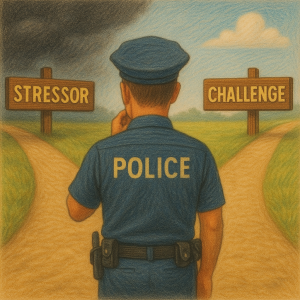
Understanding Your Stress Response: Challenge vs. Stressor
Every first responder knows the feeling, that moment when a call comes in and your body instantly shifts into high gear. So why is it that two first responders can respond to the exact same call, yet one walks away energized while the other feels completely drained. The difference isn’t
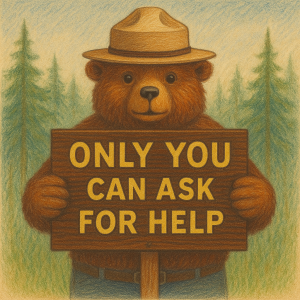
Only You Can Ask for Help: Taking Control of Your Recovery
When Smokey Bear said “Only YOU can prevent forest fires,” he wasn’t just talking about campfire safety. He was talking about personal responsibility. Today, I want to share a different but equally important message with every first responder reading this: Only YOU can ask for help. Just like preventing forest

Your Windows of Perception: Understanding How Life Shapes Your View
Picture a brand new house with perfectly clean windows. Every surface gleams without a single streak or smudge. That’s how you started life. You saw the world clearly, without filters, without preconceived judgments. Just pure, unobstructed experience. But as you grew up, those windows began to collect dust. Every experience
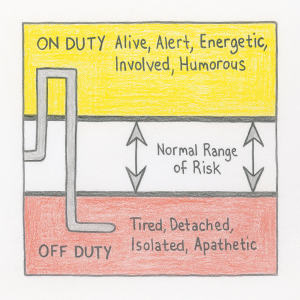
The Hypervigilance Cycle: Understanding Your Body’s Response to Stress
If you’re a first responder, you know the feeling. That heightened state of alertness during your shift when you’re fully engaged, quick-thinking, and ready for anything. Then the crash afterward, when you feel emotionally detached, physically exhausted, and socially isolated. Welcome to the hypervigilance cycle. The On-Duty High: When Your
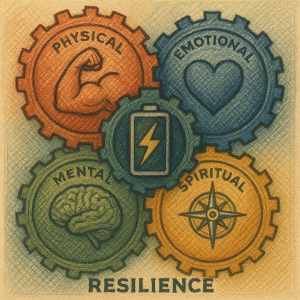
The Four Domains of Resilience: Building Your Inner Battery
As a first responder, you’ve likely heard the term “resilience” thrown around in training sessions and department meetings. But what does resilience actually mean, and how can you build it in a way that makes a real difference in your daily life? Think of resilience like an inner battery that
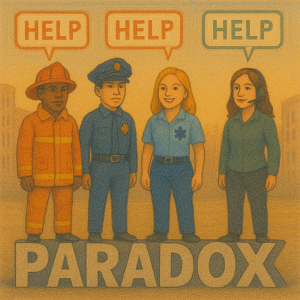
The Help Paradox: Why We Avoid Asking for Support When We Need It Most
As a first responder, you’ve dedicated your career to helping others in their darkest moments. You run toward danger when everyone else runs away. You provide aid when people need it most. But when it comes to asking for help yourself, something strange happens, something that affects nearly every person
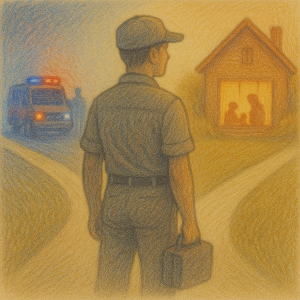
Balancing Two Families: Managing Your First Responder and Home Life
As a first responder, you face a unique challenge balancing the intense bonds of your professional family with the deep connections of your home life. Whether you’re a career firefighter, police officer, EMT/paramedic, or volunteer, this delicate balance can make or break your most important relationships. The Pull Between Two

The Science of Stress: What’s Really Happening in Your Brain
When you’re rushing to a call or standing at the scene of a fatal accident, your body responds in ways that have kept humans alive for thousands of years. But what’s actually happening inside your brain during these moments? Understanding the science behind stress and trauma isn’t just academic curiosity,

Creating Your Power Move: A Personal Reset Button
As a first responder, you understand the importance of having reliable tools at your disposal. You maintain your equipment, practice your skills, and prepare for the unexpected. But what if you could create a personal tool that helps you reset your emotional state in moments of stress or uncertainty? Enter
